Health
-

6 keys to a long, healthy life (ice cream included)
Also, why reading Ben Franklin beats climbing Mount Everest
-

Six cancers rising faster in younger adults than older ones
Large new global study fuels growing concern over trend of increases in several types

-

What’s next for GLP-1s?
Scientists eye new treatment targets for popular weight-loss drugs, from heart failure to addiction
-

Pricey blockbuster GLP-1s are costing users — and most of the rest of us, too
Health insurers are passing along cost for coverage in form of higher rates across the board, policy researcher says
-

Drinking 2-3 cups of coffee a day tied to lower dementia risk
Caffeinated tea also found to slow cognitive decline in study

-

New AI tool predicts brain age, dementia risk, cancer survival
Unlike other AI models, BrainIAC needs limited data to ID key neurological health indicators

-
A look inside
Scientists have deciphered the three-dimensional structure of the human genome, paving the way for new insights into genomic function and expanding our understanding of how cellular DNA folds at scales that dwarf the double helix.
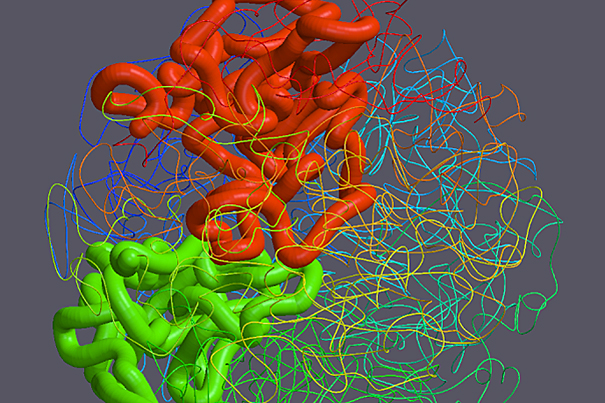
-
Three Harvard teams to receive $9 million each in federal funding for stem cell research
Three teams of Harvard Stem Cell Institute (HSCI) researchers are slated to receive $27 million over seven years in National Heart Lung and Blood Institute (NHLBI) grants for the development…
-
Harvard team reports major step forward in cell reprogramming
A team of Harvard Stem Cell Institute (HSCI) researchers has made a major advance toward producing induced pluripotent stem cells, or iPS cells, that are safe enough to use in…
-
Jack Szostak 2009 Nobel Laureate in Physiology or Medicine
Jack Szostak, a genetics professor at Harvard Medical School and Harvard-affiliated Massachusetts General Hospital (MGH), has won the 2009 Nobel Prize in physiology or medicine for pioneering work in the…
-
How does a worm build a throat?
Mention worms to most people, and they probably think of fishing, gardening, or trips to the vet. Mention them to Susan E. Mango, and she begins telling you how “absolutely…
-
Not having health insurance is expensive
New findings from researchers at Harvard Medical School (HMS) demonstrate that individuals who were either continuously or intermittently uninsured between the ages of 51 and 64 cost Medicare more than…
-
Re-examining Darwin’s thoughts on species
Radcliffe Fellow James Mallet says Darwin’s idea of speciation as a step in a continuum of differences reflects reality in nature.
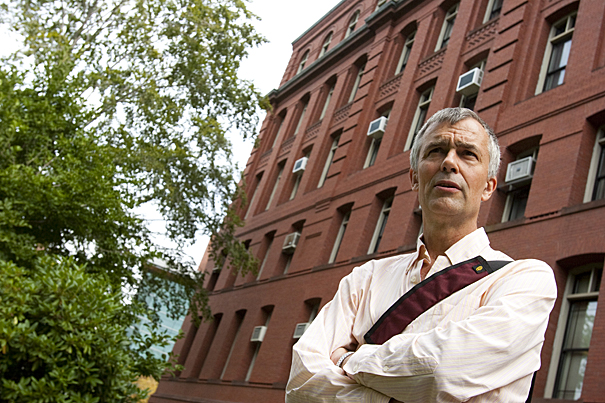
-
Betley probes natural power plant
Harvard chemist Ted Betley is examining the process of photosynthesis to understand and manipulate nature’s engineering.
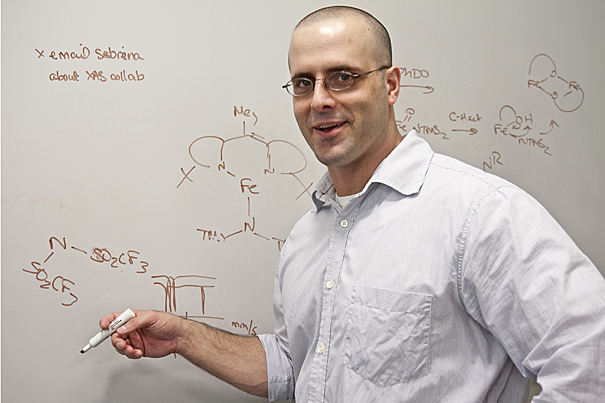
-
Lipsitch catches the flu in action
Harvard School of Public Health Epidemiology Professor Marc Lipsitch is helping the government plan its response to H1N1 flu.
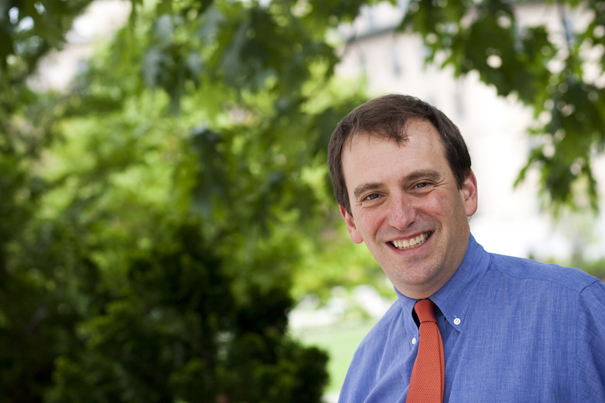
-
School of Public Health professor advising feds on H1N1 policy
One thing certain about the flu is uncertainty, according to Marc Lipsitch, a professor of epidemiology at the Harvard School of Public Health and a prominent authority on the spread…
-
Opposites attract – but they may not stay together
Opposites may always attract. But they may not remain together long-term. In a counter-intuitive discovery published in the current edition of the journal Nature, researchers from Harvard, the University of California at…
-
New study finds 45,000 deaths annually linked to lack of health coverage
Nearly 45,000 annual deaths are associated with lack of health insurance, according to a new study published online today by the American Journal of Public Health. That figure is about…
-
HSPH dean evaluates H1N1 response, lessons learned
Health officials learned enough during the spring’s first wave of swine flu to be confident about managing this fall’s expected second wave, despite a “sense of uneasiness” that hangs over the coming flu season, Harvard School of Public Health Dean Julio Frenk.
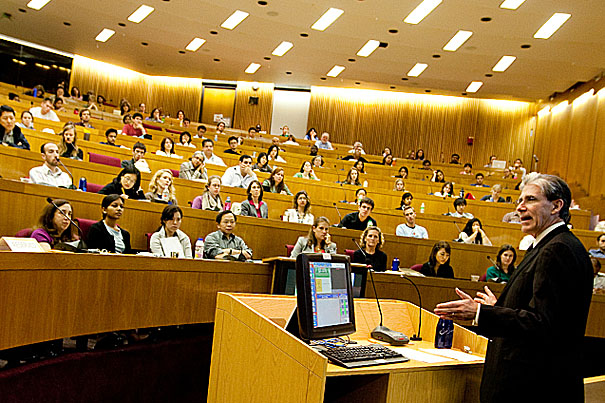
-
Online encyclopedia makes life searchable
One hundred and fifty thousand species down, 1.65 million to go. That is the tally for the online Encyclopedia of Life (www.eol.org/), an ambitious two-year-old project with the goal of nothing less than documenting in one place all of the 1.8 million known living species on Earth and making the information available to everyone with Internet access.
-
Growing her own answers
Assistant Professor Kirsten Bomblies examines plant immune responses for clues about genetic divergence.
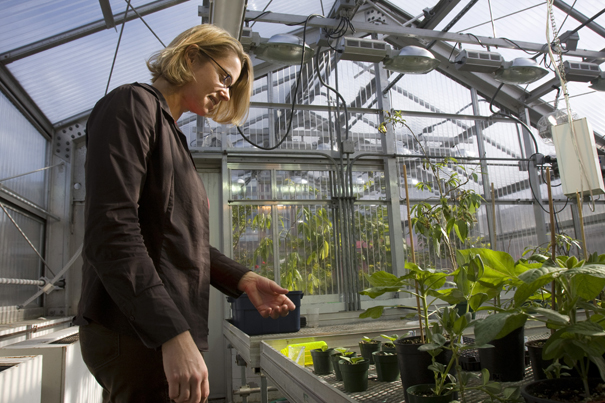
-
Transition from egg-laying to live-born
A new analysis of extinct sea creatures suggests that the transition from egg-laying to live-born young opened up evolutionary pathways that allowed these ancient species to adapt to and thrive in open oceans.

-
Wilson, Watson reflect on past trials, future directions
A conversation between DNA discoverer James Watson and biologist E.O. Wilson was moderated by Robert Krulwich. They reflected on their lives and careers and talked about the future of biology at Sanders Theatre in Memorial Hall at Harvard University.
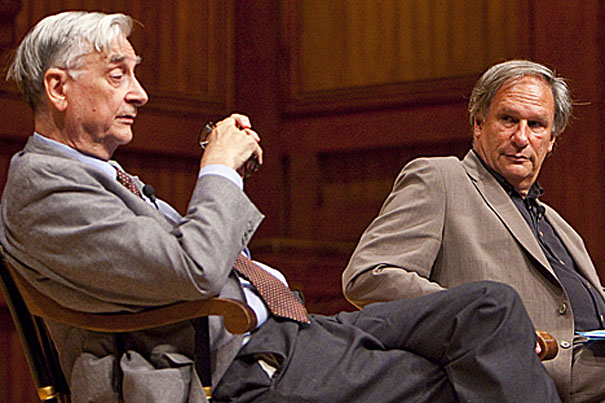
-
Drug for MS reactivates virus causing deadly brain disease
The virus responsible for progressive multifocal leukoencephalopathy (PML), a rare brain disease that typically affects AIDS patients and other individuals with compromised immune systems, has been found to be reactivated…
-
Genome of Irish potato famine pathogen decoded
A large international research team has decoded the genome of the notorious organism that triggered the Irish potato famine in the mid-19th century and now threatens this season’s tomato and…
-
Concentrating on stem cells
New concentration is the latest example of the University’s commitment to and pre-eminence in the promising field of stem cell research.

-
Mice living in Sandhills quickly evolved lighter coloration
A vivid illustration of natural selection at work: Harvard scientists have found that deer mice quickly evolved lighter coloration after glaciers deposited sand dunes atop what had been much darker soil.

-
Neural response to electrical currents isn’t localized, as previously believed
For more than a century, scientists have been using electrical stimulation to explore and treat the human brain. The technique has helped identify regions responsible for specific neural functions and has been used to treat a variety of conditions from Parkinson’s disease to depression. Yet no one has been able to see what actually happens at the cellular level when the brain is electrically prodded.
-
Low-carb diets linked to atherosclerosis and impaired blood vessel growth
Even as low-carbohydrate/high-protein diets have proven successful at helping individuals rapidly lose weight, little is known about the diets’ long-term effects on vascular health. Now, a study led by team…
-
Study finds promise in combined transplant/vaccine therapy for high-risk leukemia
Two of the most powerful approaches to cancer treatment — a stem cell transplant and an immune system-stimulating vaccine — appear to reinforce each other in patients with an aggressive,…
-
Fragile period of childhood brain development could underlie epilepsy
A form of partial epilepsy associated with auditory and other sensory hallucinations has been linked to the disruption of brain development during early childhood, according to a study led by…
-
Prepping for H1N1, round 2
While questions still remain about the H1N1 flu’s potential virulence in the coming months, there is little doubt that this particular viral strain will return.
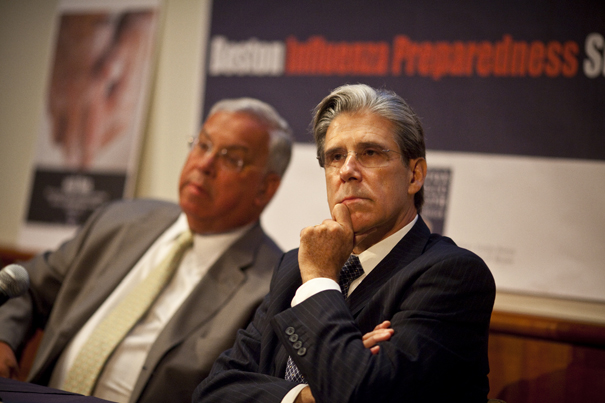
-
New metabolic safeguards against tumor cells revealed
Cells don’t like to be alone. In the early stages of tumor formation, a cell might be pushed out of its normal home environment due to excessive growth. But a…
-
Study supports DNA repair-blocker research in cancer therapy
Scientists at Dana-Farber Cancer Institute have uncovered the mechanism behind a promising new approach to cancer treatment: damaging cancer cells’ DNA with potent drugs while simultaneously preventing the cells from…
-
NIH renews Harvard Center for AIDS Research grant for another five years
The National Institutes of Health has renewed for five years – and $18.1 million – the funding for the Harvard University Center for AIDS Research (Harvard CFAR). Harvard is one…
-
Researchers discover chemical that kills cancer stem cells
A multi-institutional team of Boston-area researchers has discovered a chemical that works in mice to kill the rare but aggressive cells within breast cancers that have the ability to seed…

